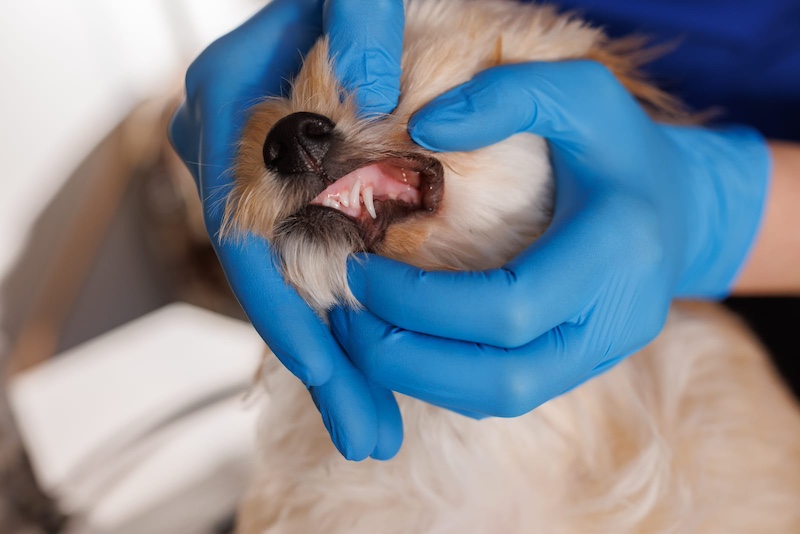Owning a small dog can be a delightful experience, but these adorable companions can also be prone to certain health issues due to their size and breed. As a pet parent, it’s crucial to be vigilant about their well-being and recognize the signs of common health problems early. Here are ten health issues that small dog owners should be aware of and monitor regularly.
1. Dental Problems

Small dogs often suffer from dental issues, such as periodontal disease, due to their crowded teeth. This can lead to bad breath, difficulty eating, and even infections. Regular teeth brushing with a dog-friendly toothbrush and toothpaste can help prevent these problems. Additionally, regular vet check-ups for professional cleanings are essential.
2. Patellar Luxation

Patellar luxation, or dislocation of the kneecap, is common in small breeds like Pomeranians, Yorkies, and Chihuahua. Symptoms include limping, difficulty jumping, and soreness in the hind legs. This condition can lead to arthritis if left untreated, so it’s important to keep your dog’s weight under control and avoid excessive exercise.
3. Heart Disease

Small dogs are susceptible to heart problems, including heart murmurs and congestive heart failure. Signs to watch for include coughing, lethargy, difficulty breathing, and decreased appetite. Regular veterinary check-ups can detect heart issues early, allowing for better management and treatment.
4. Hypoglycemia

Tiny breeds like Yorkies and Toy Poodles are prone to low blood sugar, particularly when stressed or not eating properly. Symptoms include weakness, lethargy, seizures, and even unconsciousness. To prevent hypoglycemia, feed your small dog regular, balanced meals and monitor their food intake closely.
5. Collapsing Trachea

The trachea of small dogs is prone to collapsing due to its structure. Breeds like Shih Tzus and Pomeranians are more vulnerable. Symptoms include a honking cough, difficulty breathing, and fatigue. Avoid collars and opt for a harness to reduce pressure on the trachea, and manage symptoms with medication as recommended by your vet.
6. Seizures

Epilepsy and seizures are more common in smaller breeds. A seizure in a small dog can be frightening, but with veterinary care, they can often be controlled. Seizures may be caused by low blood sugar, brain tumors, or idiopathic epilepsy. Keep a seizure diary to help your vet diagnose and treat the issue effectively.
7. Allergies

Allergies can cause itching, redness, and skin infections in small dogs. Common triggers include food ingredients, environmental factors, and flea bites. Over-the-counter antihistamines or prescribed medications may help alleviate symptoms. Regular grooming can also help reduce allergens on your dog’s coat.
8. Liver Shunts

Liver shunts are abnormal blood vessels that bypass the liver. This can lead to toxins building up in the body, causing symptoms like vomiting, lethargy, and poor growth. Small breeds like Yorkies and Maltese are most at risk. Surgical intervention is often required to correct this condition.
9. Allergic Dermatitis

Skin infections and irritations are common in small dogs due to their sensitive skin. Allergic dermatitis can cause redness, itching, and hair loss. Treatment usually involves a combination of medicated shampoos, corticosteroids, and antibiotics. Regular vet visits can help keep these conditions under control.
10. Obesity

Due to their small size, overweight small dogs are at risk of joint problems, heart disease, and diabetes. It’s essential to monitor their diet and exercise levels closely. Feed them high-quality, balanced meals, and avoid overfeeding. Regular exercise, such as daily walks, can help maintain a healthy weight. Please Note: This content was created with the assistance of AI and thoroughly edited by a human before publishing.

